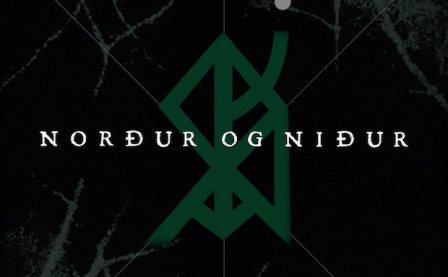Mogwai, the seminal Scottish post rock group, return after two years with the long-awaited Happy Songs for Happy people. Incidentally, any fans of Mogwai who may have been put off by the title of this record and concerned that the band opted to take a different musical direction (it's called irony, folks) will not be disappointed. The tracks on this album are no happier than the band's previous efforts. This is Mogwai, through and through, without question. I suppose that one could say that they have, to a degree, begun to deviate from their standard and typical quiet-LOUD-quiet formula, but this album still features the classic Mogwai sound and will meet the expectations of even the most discriminating post rock aficionado. Most of the tracks on Happy Songs for Happy People are quite consistently paced””more so than on records such as Young Team and Come on Die Young, albums which frequently alternated between low-key guitar noodling and out-and-out musical violence. Previous releases by Mogwai have shown them to be an extremely engaging post rock outfit, unhindered by their lack of vocals and traditional, lyrical songwriting skills. What they may lack in vocals, however, Mogwai have always made up for in pure, unadulterated, raw energy and emotional intensity.
The opening track, “Hunted by a Freak,” shows Mogwai clearly venturing into prog-rock territory. The synthesized vocals and organ on this piece add a distinctively prog-ish touch to the song. In fact, Mogwai's “contemporary” take on Seventies progressive rock, on several tracks, is actually quite similar to Air's magnificent score for the film “The Virgin Suicides.” The keyboards on the second track, “Moses? I Amn't,” almost recall the Seventies keyboard sound of Vangelis or Mike Oldfield. “Moses? I Amn't” proves to be a considerably more experimental track than the bulk of Mogwai's other work. Utilizing what sounds like sampled percussion and a lush string arrangement in conjunction with the synthesizer, the track culminates in an interesting combination of the organic and inorganic, rolled into one incredibly melancholy package.
One of the tracks, “Boring Machines Disturbs Sleep,” even contains some pleasant (and rare) vocals, although they are buried slightly beneath the distorted guitar melody and the constant hum and squeal of feedback, which is heavily controlled””being used almost as a keyboard or other ambient instrument might have been used. In fact, “controlled” is a term that applies to this album in a number of ways. The tracks never lose control and lumber over into the realm of maudlin, manipulative emotionalism in a GY!BE or Sigur Ros sort of way. Although a couple of tracks occasionally border on becoming over-the-top, there is a restraint and maturity to Mogwai's music which has clearly increased with each record.
“Ratts of the Capital,” the sixth track, despite its eventual heaviosity, begins by calling to mind Tortoise, with its scrubbed-down, ultra-clean drum beat and vibes (a later track, “I know you are but what am I?,” features an absolutely haunting and minimal vibraphone melody as well). “Ratts of the Capital” could safely be considered the centerpiece of the album. Clocking in at eight and a half minutes, the track is epic post rock. Halfway through the song, however, the track takes another prog-ish turn toward a King Crimson-like sound””distorted bass and acidic, scorching Seventies guitar.
“Golden Porsche” is a track that packs a powerful emotional wallop. There's something in this song for everyone. An extremely laid-back piece, “Golden Porsche” demonstrates Mogwai's herculean tightness as a band. They sound like they've been playing together for thirty years, the instrumentation is so natural. The piano and picked guitar melodies in the track complement each other beautifully, until a sad cello melody enters the mix and doubles the emotional value of the song.
The final track, “Stop Coming to my House,” is reminiscent of Mogwai's earlier work. It starts out simply, then adds layer upon layer to the music, building in intensity, until the track ultimately breaks apart and the layers fade out and disappear again, one by one. The album ends on a humorous note, with a “happy song for happy people,” so to speak: a “cute” little sampled chant which is sung by what sounds like stoned muppets.
Happy Songs for Happy People is a consistent and solid record, and like all Mogwai albums, never uneventful in the least. One thing the listener will be able to count on upon experiencing Happy Songs for Happy People is the fact that each progressive track is bound to present them with something new and different throughout the album's duration. I listened to the album in my car, on my headphones at home, and at work, and each listen provided something new to my ears and mind. The structure of the music is absolutely brilliant, melodic, and creative, and I'm looking forward to letting this record provide me with a variety of emotional states and musical experiences for weeks to come. Another highly recommended album.
1. Hunted by a Freak
2. Moses? I Amn't
3. Kids will be Skeletons
4. Killing all the Flies
5. Boring Machines Disturbs Sleep
6. Ratts of the Capital
7. Golden Porsche
8. I know you are but what am I?
9. Stop Coming to my House
More about: Mogwai




